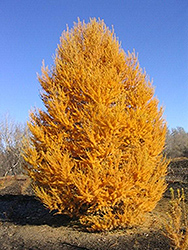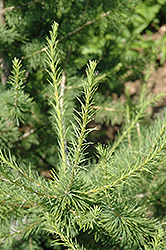>> Home
Oasis Siberian Larch
Larix sibirica 'Durcarl'
Height: 40 feet
Spread: 25 feet
Sunlight:
![]()
![]()
Hardiness Zone: 1b
Description:
A recent introduction of this tall deciduous-conifer that holds it green color longer into the fall than the species, and subsequently turning golden yellow later as well; habit is also much fuller and denser than the species
Ornamental Features
Oasis Siberian Larch is primarily valued in the landscape for its decidedly oval form. It has rich green deciduous foliage which emerges light green in spring. The needle-like leaves turn an outstanding gold in the fall. The rough tan bark and gold branches add an interesting dimension to the landscape.
Landscape Attributes
Oasis Siberian Larch is a dense deciduous tree with a strong central leader and a shapely oval form. It lends an extremely fine and delicate texture to the landscape composition which can make it a great accent feature on this basis alone.
This is a relatively low maintenance tree, and usually looks its best without pruning, although it will tolerate pruning. Deer don't particularly care for this plant and will usually leave it alone in favor of tastier treats. It has no significant negative characteristics.
Oasis Siberian Larch is recommended for the following landscape applications;
- Accent
- Shade
- Vertical Accent
Planting & Growing
Oasis Siberian Larch will grow to be about 40 feet tall at maturity, with a spread of 25 feet. It has a low canopy, and should not be planted underneath power lines. It grows at a slow rate, and under ideal conditions can be expected to live for 70 years or more.
This tree does best in full sun to partial shade. It is quite adaptable, prefering to grow in average to wet conditions, and will even tolerate some standing water. It is not particular as to soil type or pH. It is quite intolerant of urban pollution, therefore inner city or urban streetside plantings are best avoided. This is a selected variety of a species not originally from North America.

